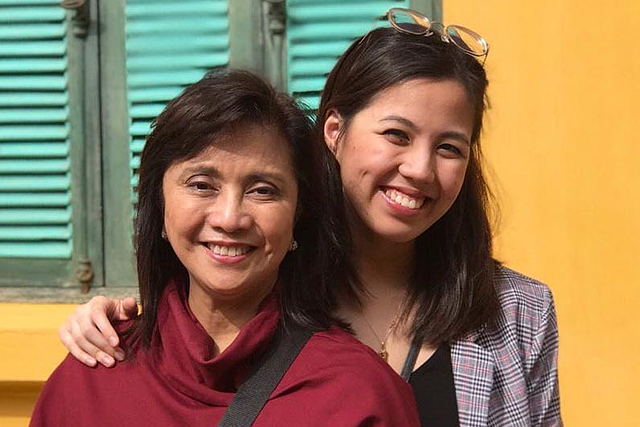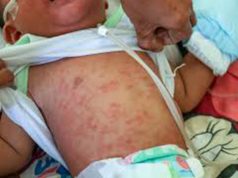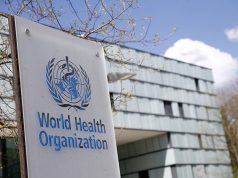A blogger criticized Tricia Robredo’s tweet on the rise of polio, dengue and measles cases in the country by inadvertently sharing information that validated her views.
Tricia, Vice President Leni Robredo’s daughter, expressed on September 19 that the worsening health crisis may be due to the disinformation on vaccines that could’ve prevented the spread of these illnesses.
“Measles, dengue and polio all in one year. When you run a nation with fear and fake news, and use health for your personal political wars. Sinong talo? ‘Yung mga pinangakuan ninyo ng pagbabago,” she said.
Measles, dengue and polio all in one year.
When you run a nation with fear and fake news,
and use health for your personal political wars.
Sinong talo? 'Yung mga pinangakuan ninyo ng pagbabago. https://t.co/wkOVwu8Ffq— Tricia Robredo (@jpgrobredo) September 19, 2019
She also retweeted a report of the Department of Health’s confirmation that polio re-emerged in the country after 19 years of being polio-free.
Pro-administration blogger Rey Joseph Nieto took offense with this tweet, made a screenshot of it, and juxtaposed it to a table of the distribution of required vaccines from 2014 to 2017.
He said that the data came from DOH’s annual reports of the Field Health Services Information Systems (FHSIS).
When he shared this on his social media blog “Thinking Pinoy,” Nieto threw insults at Tricia and her mother on his lengthy criticism against them.
“On polio issue, VP daughter Tricia Robredo is just as stupid as her mother. Miss Tricia Robredo, please stop spreading disinformation. As they say, it’s better to keep your mouth shut and appear stupid than open it and remove all doubt,” Nieto said.
“VP Leni Robredo’s daughter Tricia recently tweeted about the polio outbreak that DOH declared yesterday. She quickly blamed the allegedly rampant fake news and fear-mongering in the country that, I can only presume, caused a vaccine scare,” he added.
ON POLIO ISSUE, VP DAUGHTER TRICIA ROBREDO IS JUST AS STUPID AS HER MOTHERMiss Tricia Robredo, please stop spreading…
Posted by Thinking Pinoy on Friday, September 20, 2019
Nieto then went on to explain that the health agency’s lack of vaccine supply from 2015 to 2017 was also a factor on the rapid spread of diseases.
Rather than prove her wrong, he supplied Tricia’s opinion with facts that politics actually have something to do with the growing health crisis.
Some Twitter users noted this and denounced Nieto for the remarks he made against Robredo’s daughter.
“At ikaw na peddler of fake news, may the souls of the dead kids haunt you for the rest of your life,” the user said.
Read your post again. This time slowly para magets mo. -96% for BGC meaning UNDER DISTRIBUTION. TAMA SI TRICIA ROBREDO.
At ikaw na peddler of fake news, may the souls of the dead kids haunt you for the rest of your life. https://t.co/5lUH5VytGc
— La Dama Amarilla Emocional 💛💛💛 (@heroangel17) September 20, 2019
Earlier this year, DOH announced the sudden rise of cases of measles in the country. Then, last August, it declared that dengue became a national epidemic.
This September, the polio outbreak was declared for the first time after more than a decade of being free from it.
Preventable with vaccine
In 2018, Public Attorney’s Office Chief Persida Acosta claimed that a series of deaths of public school students was directly linked to Dengvaxia, a controversial anti-dengue vaccine distributed via a vaccination project during the administration of former President Benigno Aquino III.
Following the sharp increase of measles cases, Health Secretary Francisco Duque III accused Acosta for her previous assertions that led to the decline of Filipino parents vaccinating their children this year.
Measles
Measles is a contagious viral infection distinctive of its red rash on the skin.
Infants and younger children are mostly vulnerable to this, the World Health Organization (WHO) noted, and should be the ideal recipients of measles vaccine for their protection.
Dengue
The dengue virus is transmitted to humans through the bites of a mosquito species aedes aegypti or yellow fever mosquitoes.
Compared to polio and measles, there’s still no specific vaccine yet that is safe for all patients.
WHO strongly recommends pre-screening for countries that consider administering dengue vaccines such as Dengvaxia.
Polio
Polio or infantile paralysis is an extremely infectious disease that affects the nervous system and can cause complete body paralysis for hours.
The last recorded case of polio in the Philippines is in 1993. The health organization declared the country polio-free in 2000.
The virus can be transmitted through contaminated food or water or person-to-person contact.










